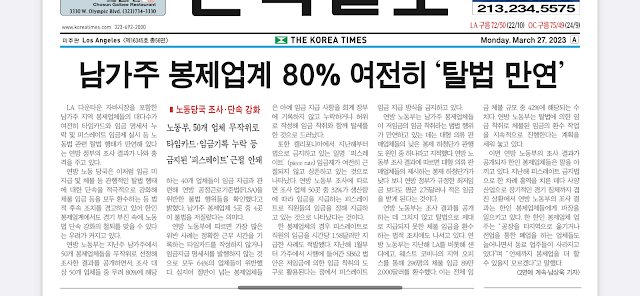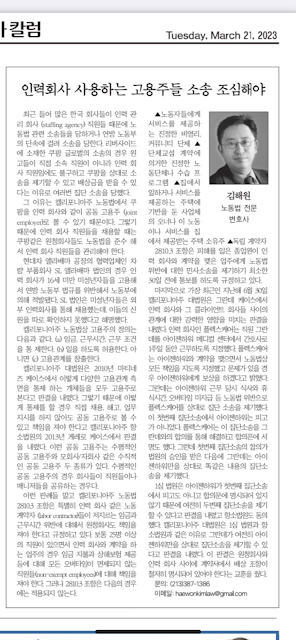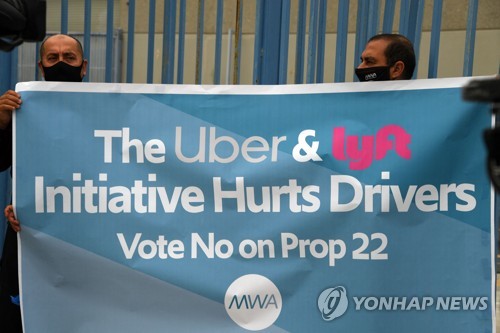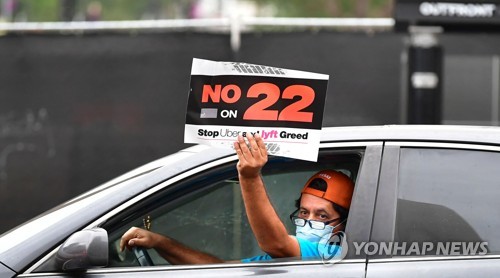A California appeals court said on Monday that Proposition 22, the ballot measure passed by state voters in 2020 that classified Uber and Lyft drivers as independent contractors rather than as employees, should remain state law.
The decision by three appeals court judges overturned the ruling last year by a California Superior Court judge, who said the proposition was “unenforceable.” It was a victory for companies like Uber, which use gig drivers to transport passengers and deliver food, but do not pay costs that an employer would have to. Those costs can include drivers’ unemployment insurance, health insurance and business expenses.
Still, the appeals court ruling was not the final say. The Service Employees International Union, which, along with several drivers, filed a lawsuit challenging Proposition 22 in early 2021, is expected to appeal the decision to the California Supreme Court, which would then have several months to decide whether to hear the case.
The judges overruled Frank Roesch, the lower court judge whose decision to throw out the proposition in August 2021 set the stage for a protracted, high-stakes legal battle that will determine the job status of hundreds of thousands of California drivers.
The opponents of the proposition argued that the ballot measure was unconstitutional under several grounds. It set limits on the State Legislature’s ability to oversee workers’ compensation for gig drivers. It included a rule restricting them from collective bargaining that critics said was unrelated to the rest of the measure, and it set a seven-eighths majority vote of the Legislature as the bar for passing amendments to the measure related to collective bargaining — a requirement that was considered nearly impossible to achieve.
The three court of appeals judges, who heard oral arguments in the case in December in San Francisco, disagreed on two of the three points, but agreed that requiring collective bargaining to occur through an amendment to the proposition “violates separation of powers principles,” and ordered that clause to be severed from the rest of the ballot measure.
“The proper remedy,” the judges wrote, is to sever that section and “allow the rest of Proposition 22 to remain in effect, as voters indicated they wished.”
Tony West, Uber’s chief legal officer, said in a statement that the ruling was a “victory for app-based workers and the millions of Californians who voted for Prop 22.” He added that he was “pleased that the court respected the will of the people.”
The Protect App-Based Drivers and Services coalition, an industry group, said the ruling upheld the policy of protecting “the independent-contractor status of app-based drivers in California, while providing drivers with new benefits.” Lyft and DoorDash also issued statements calling the ruling a victory for drivers and voters.
The Service Employees International Union condemned the decision.
“Every California voter should be concerned about corporations’ growing influence in our democracy and their ability to spend millions of dollars to deceive voters and buy themselves laws,” David Huerta, the president of S.E.I.U. California, said in a statement.
Jon Streeter, one of the three appeals court judges, disagreed with large parts of the 63-page ruling of his colleagues, Tracie Brown and Stuart Pollak. In a 64-page dissent, Justice Streeter wrote that all of Proposition 22 should be thrown out, in large part because of its clause limiting the legislature’s authority over workers’ compensation for gig drivers.
“I would affirm the judgment, but I prefer to go further. I believe we must invalidate Proposition 22 in its entirety,” Justice Streeter wrote. He added that the definition of independent contractors used in the measure was “constitutionally infirm.”
Uber and other companies have long argued that drivers value the flexibility of being an independent contractor without set hours from an employer, and say they would have to give up that freedom if they were made employees. Labor activists reply that drivers are exploited, deserve better health care and employment benefits and could maintain their flexibility under a traditional employment model.
Gig companies spent more than $200 million pushing for Proposition 22, which gave gig workers limited benefits but exempted them from Assembly Bill 5, a law passed by the California Legislature in 2019 that set a new standard for determining whether workers should be considered employees under the law.
If A.B. 5, which is facing its own legal challenge, is ever applied to gig drivers, Uber and other companies could be found to be improperly treating those drivers as independent contractors rather than as employees.
As a result, gig companies would have to adjust their business models at the cost of several hundred million dollars per year, either by giving drivers further independence or — more likely — converting some number of them into employees, possibly of a third-party vehicle fleet operator that would use Uber’s and Lyft’s platforms.
Uber has used that model in parts of Europe and has considered using it in California. Uber and Lyft have said they would need to pause their operations in California for some length of time while they switched to that model.
In a blog post in December, Alison Stein, a senior economist at Uber, laid out a scenario of “forced reclassification” that would be devastating for the company’s business. She wrote that drivers would have to work set shifts, the service’s prices and wait times would surge, the company would reduce service in smaller cities and only about a quarter of current drivers would be hired full-time as employees.
Those arguments are misleading, said Veena Dubal, a professor at the University of California College of the Law, San Francisco. She has said that drivers deserve to be treated as employees.
“Nothing about employment status restricts flexibility,” Ms. Dubal said, adding that raising prices is a “business decision, not a necessary consequence of the law.” She said many drivers worked for the platforms only rarely, so implying that a vast majority of drivers would have to find new work was deceptive.
“The oligarchs are dancing in the streets tonight,” Ms. Dubal wrote on Twitter after Monday’s ruling.
But the legal battle is far from over. Even though the California Supreme Court does not take up every case that is appealed to it, legal experts said they expected it to do so in this instance.
“It’s very hard to imagine them passing on a case of this importance,” said Seth Harris, a law and policy professor at Northeastern University who has studied gig drivers’ employment status.
Kellen Browning is a technology reporter in San Francisco, where he covers the gig economy, the video game industry and general tech news. @kellen_browning




%20knewsla%202.png)
%20knewsla%203.png)
%20knewsla%204.png)
%20knewsla%205.png)
%20knewsla%206.png)



